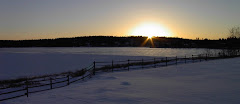In 1958 BC held a big Centennial celebration, the first of three in this province the others being in 1967 and 1971. After that 200 years of Captain Cook in 1978
The province celebrated 100 years of the creation of the Crown Colony of BC in 1858. This only related to the mainland part of BC as Vancouver Island was already a colony. The 1958 celebrations were quite big, but there was nothing in 1949 celebrating 100 years of Vancouver Island.
I think we have gone beyond the era of centennial type celebrations. This year is the 150th anniversary of the creation of BC as a Crown Colony, but there seems to be very little interest in the event.
What is it that we are really celebrating with these anniversaries? It should be our shared history, but I do not think we really can agree on what this shared history is. In the past there was one clear agreed to history, that of the English settlers. Not being an English settler, I was expected to accept the English Canadian history as my past and history.
With so many different stories to hear now, it is no longer that easy find a common narrative. What is the sort of common narrative that we should have?
I believe we need to rebuild our common narratives up from the ground up. We have focus on a smaller place and find the threads that we all can connect with. It means we need to now what was in our own neighbourhood over the last 1000 years but also the last 20 years.
Most of our neighbourboods and communities are changing constantly and we lose our community memory and through that our joint community memory of the neighbourhood. We do not document what businesses were where and which buildings we were torn down to make way for the new.
The main narrative we are supposed to remember is the big picture political one.
I grew up in Tsawwassen. I lived there from 1966 to 1983. Before 1960 Tsawwassen was almost the wilderness it had been for centuries with only a few main roads running through with some isolated houses. By 1980 the main residential part of Tsawwassen was completely constructed. In less than one generation the place was transformed and those of us that grew up there had no way to know what came before, what this place had been for so long. The suddenly new Tsawwassen post 1960s is the only one I have ever known. I have no connection to the narrative of the place where I grew up. We saw ghosts of the past in the form or lots not yet developed.
Across the street from where I grew up there was an empty lot till the early 1970s. We played in it. It was still forested. I remember using the roots of a toppled huge western red cedar as my fort with small perches sticking out above the ground. This was one of the ghosts.
Tsawwassen also has ghosts in the form of tall Doug fir and western red cedars that were not all bulldozed when the community was built.
My mother has lived in that community for close to 22 years now, but there is nothing would make her a pioneer of the community. A nameless, faceless suburb has no pioneers, it has not individual history to remember.
There are still a few businesses in Tsawwassen from the early 1960s, but very few. No one seems to remember how it once was or ever was. In the 1990s and the last few years has seen an almost complete reconstruction of the commercial core of the community. And those that are young will not remember the Super Valu and mall that came with it. The first grocery store, the Shop Easy is long forgotten.
Meanwhile we all seem to have a shared narrative about the summer of love in San Francisco.
In our schools we do not learn about the history of our community, but learn the history of some other people.
BC 150 I hope will bring us some interesting community projects. I am looking at some sort of grant to build more about the history of my neighbourhood, the Tillicum Burnside area in Victoria.

1 comment:
How do you create a shared past for people who do not have a common past? The answer is probably to only go back to the point where the group came together. Even this does not work when you have a continuing influx of new people, like BC does. No matter what time one picks to use as a common past there will always be people who do not share that common past. So what is the solution? I do not know. I have grappled with this since I have moved around enough that I have no real connection to the history of the place that I live. At some level the past has become less relevant than it used to be.
Post a Comment